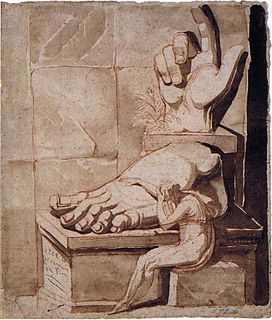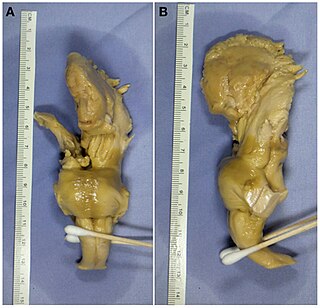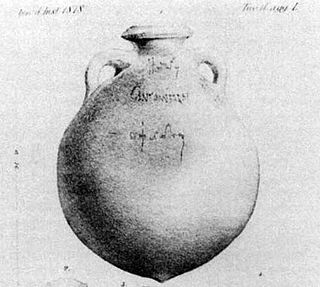 W
WAb ovo is Latin for "from the beginning, the origin, the egg". The term is a reference to one of the twin eggs from which Helen of Troy was born. The eggs were laid by Leda after Zeus, disguised as a swan, either seduced and mated with or raped her, according to different versions. Had Leda not laid the egg, Helen would not have been born, so Paris could not have eloped with her, so there would have been no Trojan War.
 W
WThe anima mundi is, according to several systems of thought, an intrinsic connection between all living things on the planet, which relates to the world in much the same way as the soul is connected to the human body.
 W
WAve crux, spes unica is a Latin pious expression or motto meaning "Hail to the Cross, our only hope." The expression has a long history in Catholic and Anglican piety and is a motto occasionally used by bishops and church institutions. It is the motto of the Congregation of Holy Cross, Edith Stein, and of Daniel Cardinal DiNardo, Archbishop of Galveston-Houston.
 W
WCura personalis is a Latin phrase that translates as "care for the entire person." Cura personalis suggests individualized attention to the needs of the other.
 W
WDominus illuminatio mea is the incipit of Psalm 27 and is used by the University of Oxford as its motto. It has been in use there since at least the second half of the sixteenth century, and it appears in the coat of arms of the university.
 W
WDum vivimus vivamus is a Latin phrase that means "While we live, let us live." It is often taken to be an Epicurean declaration.
 W
WEx pede Herculem, "from his foot, [we can measure] Hercules", is a maxim of proportionality inspired by an experiment attributed to Pythagoras.
 W
WEx vivo literally means that which takes place outside an organism. In science, ex vivo refers to experimentation or measurements done in or on tissue from an organism in an external environment with minimal alteration of natural conditions. Ex vivo conditions allow experimentation on an organism's cells or tissues under more controlled conditions than is possible in in vivo experiments, at the expense of altering the "natural" environment.
 W
W"In paradisum" is an antiphon from the traditional Latin liturgy of the Western Church Requiem Mass. It is sung by the choir as the body is being taken out of the church. The text of the In paradisum — with or without the Gregorian melody itself — is sometimes included in musical settings of the Requiem Mass, such as those by Gabriel Fauré and by Maurice Duruflé.
 W
WIncurvatus in se is a theological phrase describing a life lived "inward" for oneself rather than "outward" for God and others.
 W
WNota bene is a Latin phrase which first appeared in English writing c. 1711. Often abbreviated as NB, n.b., or with the ligature , the phrase is Latin for "note well." In Modern English, it is used, particularly in legal papers, to draw the attention of the reader to a certain (side) aspect or detail of the subject being addressed. While NB is also often used in academic writing, note is a common substitute.
 W
WThe Pax Hispanica refers to a period of twenty-three years from 1598 to 1621, when Spain disengaged from the European wars of religion that afflicted Europe during the previous century. Peace was signed with the Kingdom of France, the Kingdom of England, and the Dutch United Provinces. This roughly corresponds to the rule of Philip III of Spain
 W
WPost tenebras lux is a Latin phrase translated as Light After Darkness. It appears as Post tenebras spero lucem in the Vulgate version of Job 17:12.
 W
WQuis separabit? is a motto derived from the Vulgate translation of Romans 8:35 :"Quis ergō nōs sēparābit ā cāritāte Christī..."
 W
WSit tibi terra levis is a Latin inscription used on funerary items from ancient Roman times onwards. The English language translation is approximately "May the earth rest lightly on you" or "May the ground be light to you"; the more literal, word by word, translation, is sit "may be", tibi "to you", terra "ground, soil", levis "light".
 W
WA titulus pictus is a commercial inscription made on the surface of certain artefacts. The inscription specifies information such as origin, destination, type of product, etc. Tituli picti are frequent on ancient Roman pottery containers used for trade.
 W
WVirtus non stemma is Latin for "Valor, not garland". This is the Duke of Westminster's motto at his stately home in Eaton. The motto means, less literally: Courage, not pomp. The Duke also has many stately homes with the same motto. It is the motto of Grosvenor Rowing Club and also used to be the motto of Harrow County School for Boys where it was usually translated as 'Worth, not Birth'.
 W
WVivente rege is a form of king's election, where the king's successor, usually of the same dynasty, was elected before the old king died. It was an important element of politics in Poland during the times of the nobilities' election of kings, when monarchs would attempt to push through the election of their heir, and Polish nobility (szlachta) would oppose it, on the grounds that it would lead to absolute monarchy.